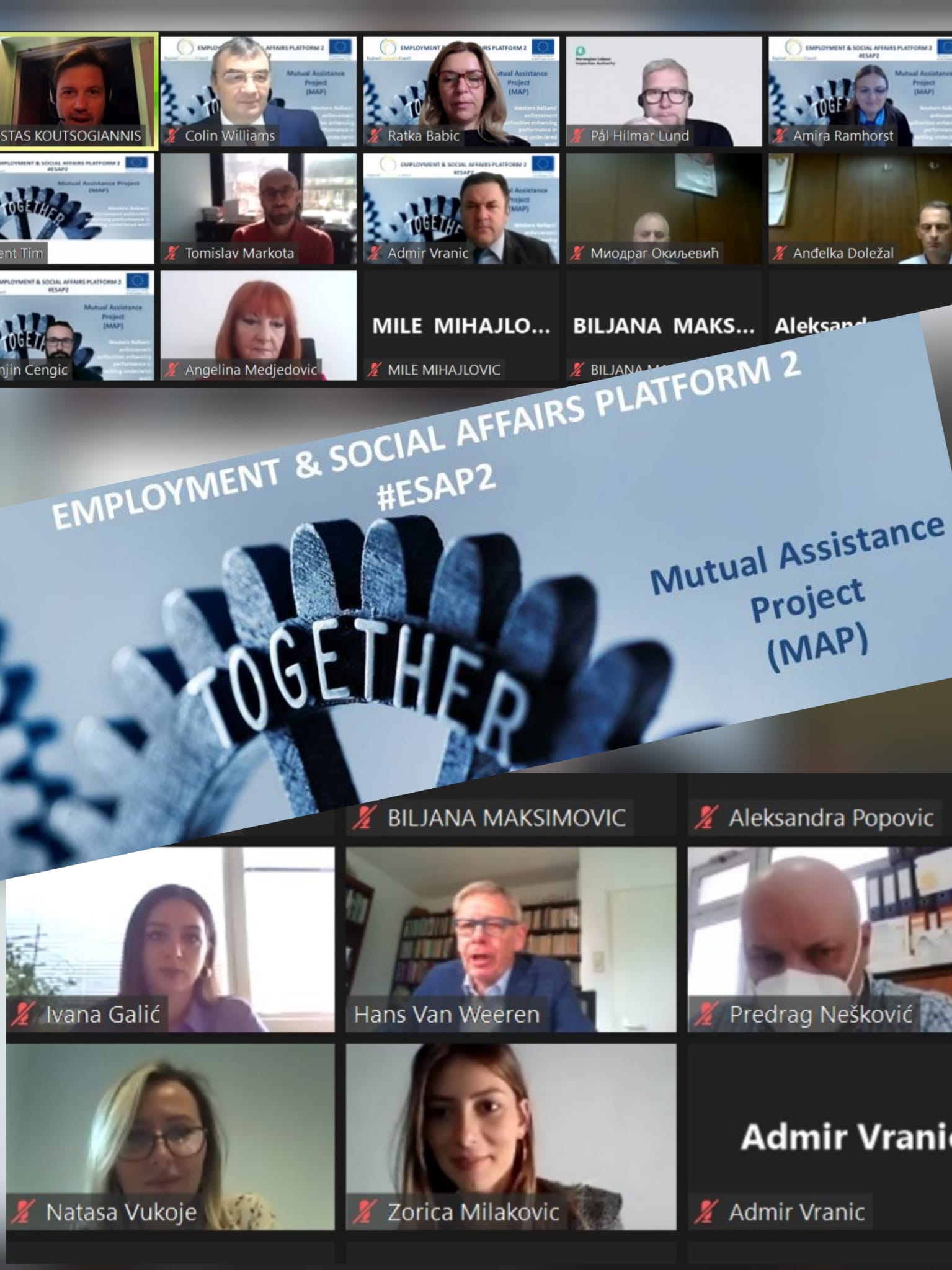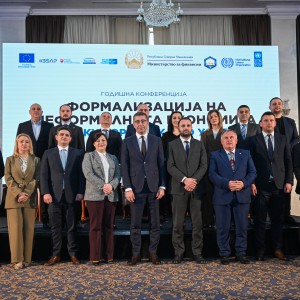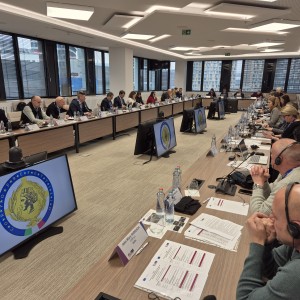News
13 September 2021 |News
RCC ESAP 2: 2021 series of ESAP 2 Mutual Assistance Projects started with open discussion and exchange of experiences, good practices, and common challenges among Western Balkan and European Enforcement Authorities

1st MAP session in ESAP 2 2021 series held today, 13 September 2021 (Photo: RCC ESAP 2)
Regional Cooperation Council’s (RCC) Employment and Social Affairs Platform 2 (ESAP 2) project in partnership with the Montenegro Administration for Inspection Affairs hosted the 1st session in the 2021 series of ESAP’s Mutual Assistance Projects (MAPs) aimed at enhancing the performance of Western Balkan enforcement authorities in tackling undeclared work. This online MAP organised by RCC’s ESAP 2 project is a first in a series of Mutual Assistance Projects (MAPs) with partners from the Western Balkans economies.
Amira Ramhorst, Team Leader of the ESAP 2 project opened the MAP workshop expressing appreciation for partners’ commitment to the MAPs and the peer learning activities of the WB Network for Tackling Undeclared Work with the ultimate goal to transform undeclared work to declared work through holistic, systematic approach.
Western Balkan economies traditionally suffer from high rates of informality as Colin Williams, ESAP 2 Lead Expert on informal employment and undeclared work underlined in his introductory remarks, adding that the holistic approach in tackling undeclared work along with regular exchange of practical experiences of “what works and what doesn’t” lead to lowering undeclared work by transforming it into declared work, ultimately ensuring fair market competition and economic growth.
Twenty peer experts, including the representatives of the Montenegrin host, those from the Republic Administration for Inspection Activities, Republika Srpska Inspectorate, Republika Srpska, Bosnia and Herzegovina, and the Labour Inspectorate, Serbia, together with European peer experts (Hans Van Weeren, Labour Inspectorate, Netherlands; Kostas Koutsogiannis, Labour Inspectorate, Greece; Pal Lund, Labour Inspectorate, Norway; and Tomislav Markota, Labour Inspectorate, Croatia) engaged in an open and lively discussion on how to enhance performance in tackling undeclared work, as it represents a big challenge for all economies and asks for constant upgrades in approach.
Key topics of today’s MAP included: strategic and action plans aimed at decreasing informal employment; operations of labour inspectors in the field; coordination of activities with other institutions/bodies; data availability, collection, sharing and analysing; risk assessment, awareness raising, policies and incentives; partnerships with social partners, and building trust in enforcement authorities. Montenegro hosts presented their modalities of work, followed by exchange of experiences of peers, identification of common challenges, ways to overcome these, while a set of peer recommendations on how to best approach the identified challenges in Montenegro were provided in the MAP.
The ESAP 2 MAPs are designed as hands-on assistance to enhance performance of a host institution and provide exchange of experiences, in order to, where possible, replicate good practices of peers from the region, European Union and other European countries. The format of open and transparent dialogue of MAPs is a non-judgemental, learning opportunity for all the participants and helps solve issues, provide advice and implementation support.
Please find dates for the next MAP sessions on the ESAP 2 web events calendar.





